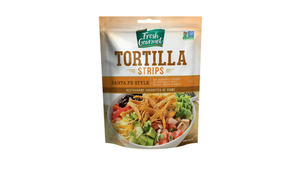TRYING TIMES
LOS ANGELES -- The 1990s have been tough for Certified Grocers of Calfornia, the Los Angeles-based, retailer-owned cooperative. In 1991 it lost the grocery business of two northern California chains -- Bel Air Markets, Sacramento, and Save-Mart Supermarkets, Modesto -- when they launched Westpac, their own distribution operation. Earlier this year Certified lost Raley's frozen food and delicatessen
August 15, 1994
LOS ANGELES -- The 1990s have been tough for Certified Grocers of Calfornia, the Los Angeles-based, retailer-owned cooperative. In 1991 it lost the grocery business of two northern California chains -- Bel Air Markets, Sacramento, and Save-Mart Supermarkets, Modesto -- when they launched Westpac, their own distribution operation. Earlier this year Certified lost Raley's frozen food and delicatessen volume when those categories were added to the Westpac facility. In 1992 it lost Williams Bros. Markets in central California when Vons Cos. acquired that Santa Maria-based chain, and in 1992 and 1993 Certified lost most of the business of its largest volume member when Hughes Family Markets, Irwindale, opened its own grocery and general merchandise warehouses. Although the cooperative continues to supply general merchandise and specialty items to all of Food 4 Less Supermarkets' northern California stores, it lost the Pleasanton-based chain's northern and southern California volume in dry grocery, frozen foods and meat when the retailer opened its own facilities in 1991 and 1992. Last year Certified lost Nob Hill General Store's business in northern California when it switched to rival Fleming Cos. Cumulatively, those losses amounted to between $700 million to $800 million, Certified said. Certified lost another $200 million to $300 million in volume, he noted, when it sold its last nine cash-and-carry stores and closed its four Convenience Clubs in 1992. Neither the cash-and-carry units nor the club stores were making money, he noted. The business it lost in southern California to Fleming Cos, Oklahoma City, has been minimal, with most of the handful of retailers it lost to its rival coming back to the cooperative, the company said.
You May Also Like




